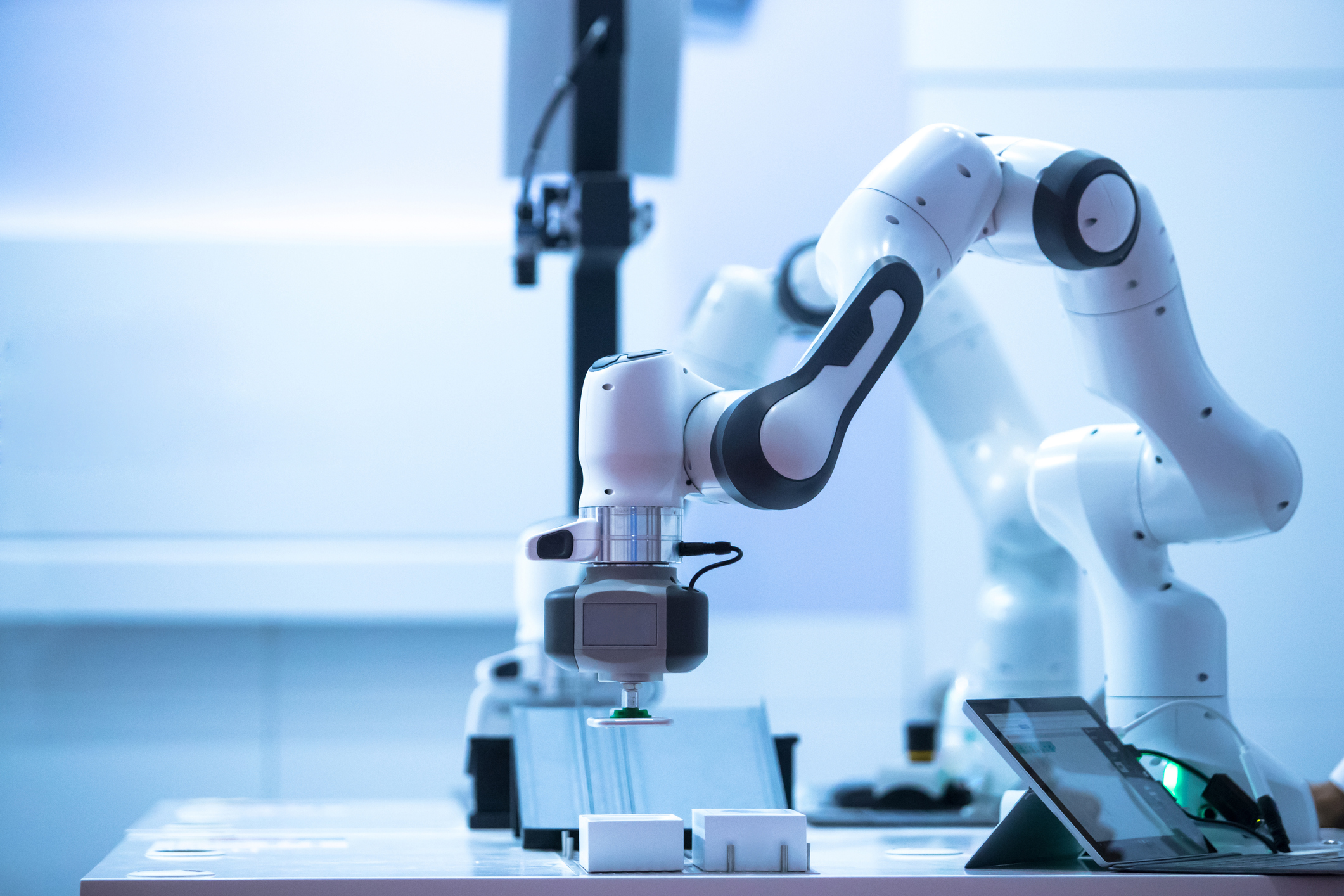ROBOMATE
Accessible, Easily Deployable Collaborative Robotic System for Manufacturing tasks
.jpg)
In Brief
- Challenge: Future Digital Challenge
- Challenge Type: National Challenge Fund
- Status: Active
The Challenge
Ireland's manufacturing sector is hugely important contributing to almost 40% of the country's GDP and 12% of total employment. Yet the sector has a strong reliance on manual labour, including many roles that are physically challenging and repetitive. Additionally, Ireland's population is ageing and while cognitive abilities have been shown to increase among older workers, prolonged ergonomic strain can lead to acquired disabilities. The challenge is the lack of robotics and automation solutions for manufacturing tasks in Ireland and the growing dependence on an ageing workforce to execute these tasks. By addressing this issue, Ireland can maintain a strong manufacturing sector and grow the sector in the face of competition from low-cost labour countries, while increasing overall workforce well-being.
The Solution
The proposed solution is an accessible, easily deployed collaborative robotic system which functions as a smart tool, able to be programmed to execute repetitive tasks by operators regardless of background, age, abilities or disabilities. The system would allow untrained workers with previous task experience to teach and direct collaborative robots during execution of physical operations. This worker acts as a supervisor to the robot. The resulting team would combine the intelligence and experience of human workers with the robot's ability to carry out repetitive tasks accurately enabling flexible at-volume manufacturing without the reliance on low-cost labour.
The Team
- Team Lead: Dr Philip Long, Lecturer Robotics and Automation, Atlantic Technological University
- Team Co-Lead: Dr Maria Chiara Leva, TU Dublin
Societal Impact Champion
- Dr Andrew Lynch, Irish Manufacturing Research